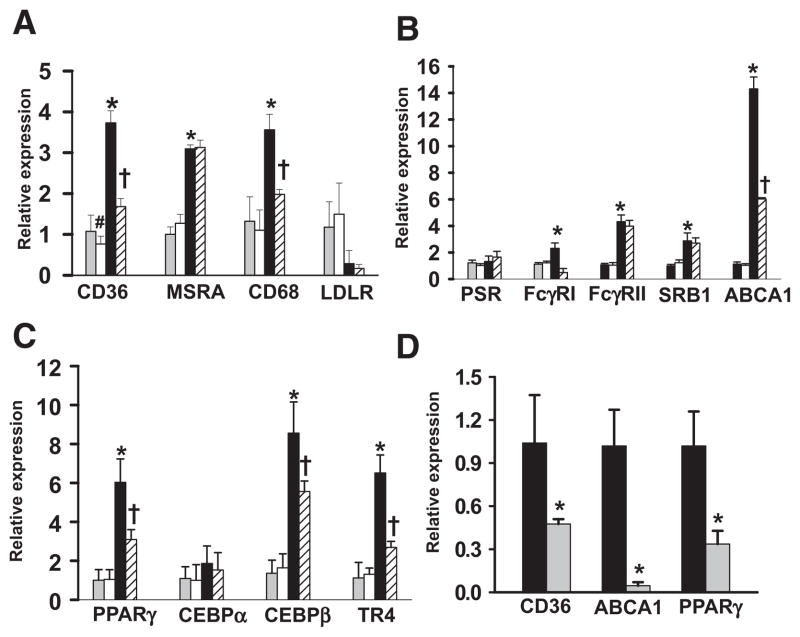Figure 5.
Plasminogen (Plg) deficiency causes reduced expression of genes involved in lipid uptake. A through C, Real-time polymerase chain reaction quantification of transcripts of genes related to lipid uptake (A), phagocytosis (B), or nuclear receptors (C) on foam cells treated with either Plg+/+ or Plg−/− mouse–derived serum. Gray bars indicate Plg+/+ serum, oxidized low-density lipoprotein (OxLDL) untreated; white bars, Plg−/− serum, OxLDL untreated; black bars, Plg+/+ serum, OxLDL treated; and striated bars, Plg−/− serum, OxLDL treated. Bars are mean±SD of triplicates. Data are representative of 2 independent experiments. *P≤0.01 vs Plg+/+ serum; #P=0.04 vs Plg+/+ serum; †P<0.002 vs Plg+/+ serum treated with OxLDL. D, Real-time polymerase chain reaction quantification on mRNA of transferred macrophages derived from hyperlipidemic ApoE−/− (black bars) and ApoE−/−Plg−/− (gray bars) recipient mice. Bars are mean±SD of triplicates. mRNAs are pooled from macrophages derived from 5 mice. ABCA1 indicates ATP-binding cassette transporter; CEBP, CCAAT/enhancer binding protein; FcγRI, Fcγ receptor type 1; FcγRII, Fcγ receptor type II; and PPAR, peroxisome proliferator-activated receptor. *P<0.001 vs Plg+/+ serum treated with OxLDL.

